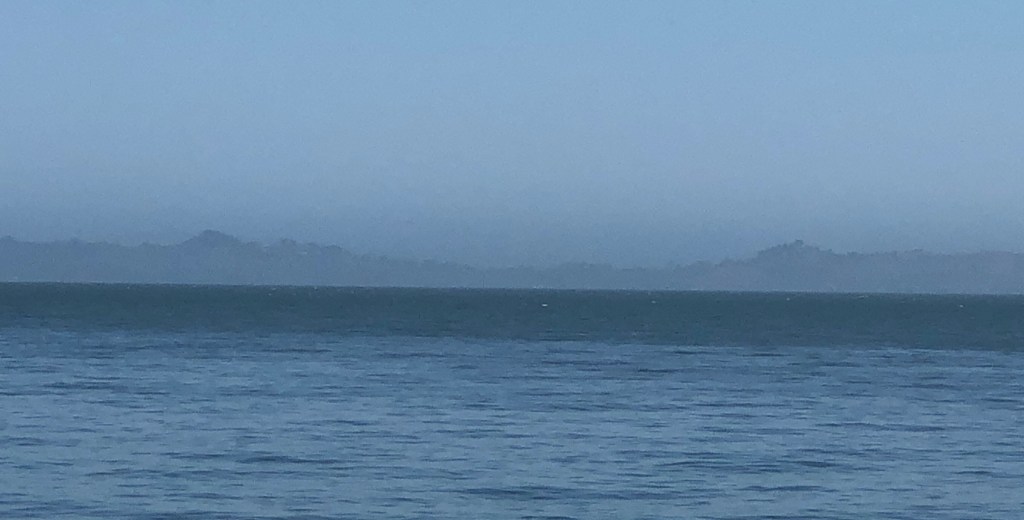(This is just a dandelion…)
The boy wasn’t allowed to go down to the river, but on summer nights he could hear the music all the way to the house. It wafted in- calliope music, of all things, from the steamboats. Band music on the river. Early jazz in the early pre-dawn of The Jazz Age.
Music on a summer night.
There was more. There were the woody sounds of the family piano- his mother played and taught him a little. That was the music in the air.
Bix was a teen in the nineteen-teens, with his ear to the windup phonograph. He knew music by ear, note for note, though he learned jazz numbers rather laboriously, finding each note and chord on the piano. He was building the tunes, like a lot of teenagers since, ears to speakers, slowing revolutions of vinyl, to capture a tune they could run with.
So music on the piano would be heard in the air. The familiar, salutary sound of piano lessons in the neighborhood on a hot summer night, pre-World War One, Davenport, Indiana.
His piano teacher says he was hopeless.
A native genius from the start, he easily learned and remembered the music as he saw it and heard it, but learning by ear-and not by note from the printed sheet music- is the great stumbling block of piano students, for the super-precocious.
It would be the cornet, for Bix.
That was the instrument he brought to the Gennet studios in Richmond, Indiana, in 1924, with which he played the shining, clarion “bell-like” tones of great jazz recordings.
But as long as other musicians knew him, they would recall a piano composition he would often play. Stunning harmonics, a jaunty displaced rhythm, bright, yet restrained; thoughtful yet too brief- the piece might not have had a name at first.
I scan a biography of Bix Beiderbecke, and I find that the musicians around Bix- also true masters of jazz and orchestral performance- showed a spontaneous interest in being acknowledged by history as being among those who first heard the composition, and said it stuck with them, how impressed they were.
It was “In A Mist.”
“In A Mist” reminds one of Ravel. The title signifies jazz composition as modern art. It’s the art of compression, saying a lot in a short time. Its rhythm, an underlying walking tempo, but with a touch of Picasso; parallel phrases ever so slightly displaced; a lighthearted exposition, as easy as conversation, all with the fluency of the artist thinking aloud.
It’s just three minutes alone with Bix. That’s “In A Mist”.
He demonstrates the art of writing, the improvisatory and spontaneous, with the carefully worked-out.
The beguiling puzzle of jazz: the practice, the mastery, of an art that defies note-writing- and yet, there it is on the page eventually.
You can’t write out ragtime, musicians used to insist. And the jazz that came after, which Bix himself played, of arrays of horns and banjos and percussion sections, with live recording paraphernalia, in primitive recording studios through the twenties, with the Paul Whitman Orchestra…
However intently that music attempted to write itself into sheet music charts, covering pop tunes and waxing light classics- it became something quintessential and unrepeatable in the hands of Bix.
There must be a copy of “In A Mist” in a piano bench somewhere. Have you heard it on a summer night? Like a rare bird alighting on your backyard bird feeder, you run to get binoculars and in a moment it’s gone.
It’s the close harmony that must have captured the attention. The bass, the parallel blues chords rising step by step, climbing the blues stairs, as the melodic voice sings lightly above; those mirroring dissonances sounding perfectly right, bemusing his fellow musicians who listened with a grin of interest and appreciation and delight.
What’s that called, Bix?
The biographer tells us they looked for a title and thought of “In A Fog”? “In The Air”?
No: In A Mist.
The piano piece has its place in the history of Jazz. Beiderbecke himself performed it at the pivotal historic Paul Whiteman performance debut of “Rhapsody in Blue” back in the twenties- a century ago,
Bix himself walked onstage alone to play the solo, a prelude to jazz, before an audience that included Rachmaninov.
The event represents a sort of official beginning to jazz as a form of classical music, which it now is. “In A Mist” is so inscribed into the very moment when the jazz era went BC to AD, entering its modern age.
The Beiderbecke piece was included in a program for the status quo, along with Gershwin in a premier which in retrospect perhaps threatened to legitimize jazz out of existence, to consign it to the brittle sheet music in piano benches everywhere, along with ragtime and the saccharine-sweet songs of the previous decades. But the modernism of the Twenties prevailed. And inspired.
Jazz had ever relied on the conventional and written, as well as the ingenious and brilliantly improvised, and the Gershwin rhapsody perhaps had found a sibling in Beiderbecke’s pioneering little prelude “In A Mist”.
Programs like the Whiteman concert are a summertime phenomenon. Orchestras will play the American music into the air on summer nights, in fairgrounds and amusement parks and on the Fourth of July in a bandshell, in a park by a lake- somewhere.
The tunes will waft over forest and river bluff and parking lot and cornfield.
And piano recitals coincide with the end of spring and the coming of summer. The neighbor kids may be practicing their pieces- at the last minute before Summer. It might be a bagatelle or invention. Or it might be a knotty Gershwin prelude, or a “theme” from “Rhapsody in Blue”. Maybe some ragtime. If your teacher will allow it.
Even sometimes one could hear a carousel with a refurbished calliope or orchestreon aboard, pumping circus carnival tunes- it’s still possible. Cotton candy still exists, and pastel and pin-striped salt water taffy. Summertime. Ice cream trucks and pinwheels.
All that will be so familiar, so nostalgic.
But it may happen that you’ll hear a harmony you’ve not heard before, or a musical idea will jump out, as on a cornet, bright and clear and new and rising quite above the fanfares and overtures, in a humble but ingenious individual voice. And you’ll remember it, and when you get home you’ll want to run to the piano and find that piece. Or find your own.
That was the beginning of the artist’s life, Bix Beiderbecke, in the early days of jazz.
And they are ALL early days.
jk
























